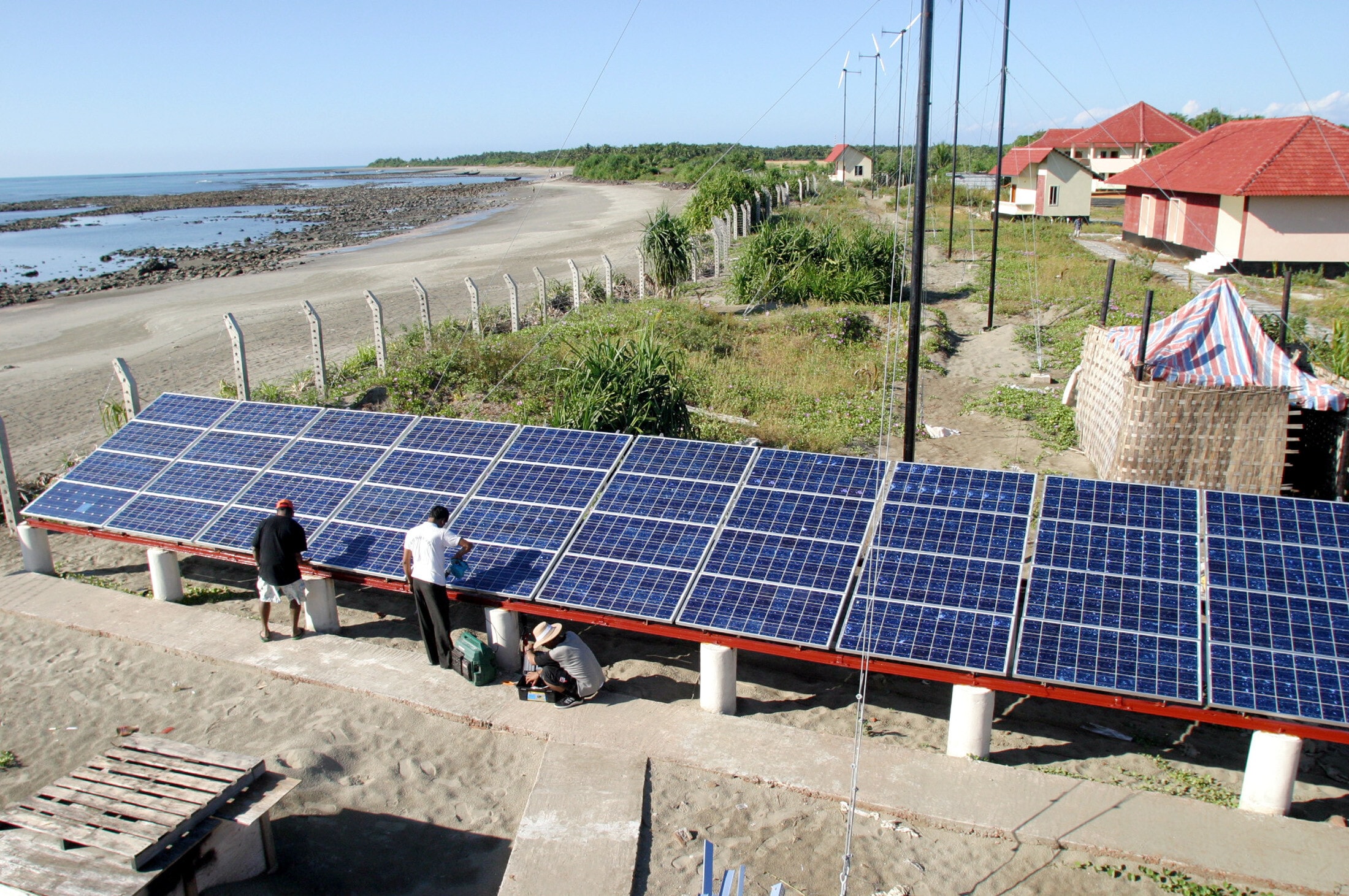Loading...
newsTicker.loading • newsTicker.loading
newsTicker.loading • newsTicker.loading
Loading...
Arthur Rahman
EcoBangla Correspondent
September 3, 2025
200
0

DHAKA - The stark contradiction at the heart of Bangladesh's environmental policy has been laid bare: while Prime Minister Sheikh Hasina receives international praise for climate leadership at high-profile forums like the CVF-COP26 dialogue, her government has quietly scrapped a staggering 5.68 GW of solar capacity—enough to power nearly 3 million homes. The revelation exposes a troubling pattern of climate rhetoric divorced from renewable energy reality, as Bangladesh talks big on international stages while systematically dismantling its own green energy infrastructure at home. The Great Solar Betrayal Bangladesh has canceled 5.68 GW of planned solar capacity across 34 projects after developers failed to secure implementation, power purchase or land lease agreements, raising investor concerns over policy inconsistency that threatens the country's renewable energy transition. The cancelled projects represent more solar capacity than Bangladesh has ever actually built, highlighting the massive gap between the government's international climate commitments and domestic energy policy implementation. To put this in perspective, 5.68 GW is equivalent to: - Nearly six times Bangladesh's current total solar installed capacity - Enough electricity to serve the entire population of Dhaka - More renewable energy than most South Asian countries have ever deployed "This is climate fraud on a massive scale," said energy policy analyst Dr. Rahman Chowdhury. "You cannot be a climate leader while simultaneously destroying your own renewable energy sector." International Praise Meets Domestic Failure The contrast couldn't be more jarring. At the CVF-COP26 dialogue, Sheikh Hasina's climate leadership was lauded by international observers who praised Bangladesh's supposed commitment to renewable energy and climate adaptation. Meanwhile, back home, her administration was systematically cancelling solar projects that could have transformed Bangladesh's energy landscape. The timing is particularly damning—while Hasina collected accolades for climate leadership on the world stage, her bureaucrats were busy destroying the foundation of Bangladesh's green energy future. This represents a profound betrayal of the international climate community's trust. Bangladesh has positioned itself as a leader among climate-vulnerable nations, using this status to secure climate finance and diplomatic support. Yet the reality reveals a government more interested in maintaining fossil fuel dependency than delivering on renewable energy promises. Policy Chaos Drives Away Investment The solar project cancellations stem from what industry insiders describe as deliberate bureaucratic sabotage. Developers failed to secure implementation, power purchase or land lease agreements—not because the projects were technically or economically unviable, but because government agencies systematically refused to provide necessary approvals and contracts. "The government created impossible conditions for solar developers," explained a renewable energy executive who requested anonymity due to fear of retaliation. "They demanded perfect documentation while refusing to provide clear guidelines. They required land agreements while blocking access to suitable sites. They asked for power purchase agreements while refusing to negotiate fair terms." This bureaucratic warfare against renewable energy developers has destroyed investor confidence in Bangladesh's solar sector. International renewable energy companies that once viewed Bangladesh as a promising market are now actively avoiding the country, taking their capital and expertise to more welcoming jurisdictions. The Cost of Climate Hypocrisy The economic implications of this solar betrayal are staggering. The cancelled 5.68 GW of solar capacity would have: - Displaced billions of dollars in fossil fuel imports annually - Created thousands of green jobs in rural communities - Reduced carbon emissions by millions of tons per year - Provided energy security for vulnerable communities - Positioned Bangladesh as a regional renewable energy leader Instead, Bangladesh continues hemorrhaging foreign exchange on expensive fuel imports while missing massive opportunities for sustainable development. The government's climate rhetoric has become a cruel joke for ordinary Bangladeshis who pay inflated electricity bills to subsidize fossil fuel dependency. International Community Must Act The international climate community must hold Bangladesh accountable for this massive gap between promise and performance. Climate finance and diplomatic support should be contingent on actual renewable energy deployment, not empty rhetoric at international conferences. "We cannot allow countries to game the climate system by talking green while acting brown," warned international climate policy expert Dr. Sarah Mitchell. "Bangladesh's solar cancellations represent exactly the kind of climate fraud that undermines global efforts to transition to renewable energy." The CVF-COP26 dialogue and similar forums must demand concrete evidence of renewable energy progress, not just political speeches about climate leadership. Bangladesh's membership in climate-vulnerable nation groupings should be conditional on genuine commitment to renewable energy transition. A Government at War with Its Own Future The solar project cancellations reveal a government fundamentally at odds with its own stated environmental priorities. While Hasina's international speeches emphasize renewable energy and climate adaptation, her domestic policies systematically undermine both goals. This isn't incompetence—it's sabotage. The same government agencies that praised solar energy in international forums actively blocked solar projects at home. The same officials who negotiated climate finance agreements refused to sign power purchase agreements with renewable energy developers. "They're playing a double game," said environmental activist Rashida Begum. "Green words for the international audience, brown policies for the domestic energy sector. It's climate colonialism in reverse—they're exploiting their own vulnerability for international sympathy while perpetuating fossil fuel dependency at home." Demanding Real Accountability Bangladesh's renewable energy sector and climate vulnerable communities deserve better than this toxic combination of international posturing and domestic sabotage. The government must face consequences for this systematic destruction of the country's green energy future. International climate partners should: - Suspend climate finance until concrete renewable energy progress is demonstrated - Demand public disclosure of all cancelled renewable energy projects and reasons for cancellation - Require binding renewable energy deployment targets as conditions for climate support - Monitor actual energy sector policies, not just international rhetoric The people of Bangladesh deserve a government that matches its climate words with renewable energy actions. The international community must stop enabling this climate hypocrisy and demand real accountability from leaders who talk green while acting brown. Until Bangladesh proves its climate leadership through actual solar deployment rather than international speeches, its claims to climate leadership should be treated with the skepticism they deserve.


Join the conversation and share your thoughts!
Be the first to share your thoughts!